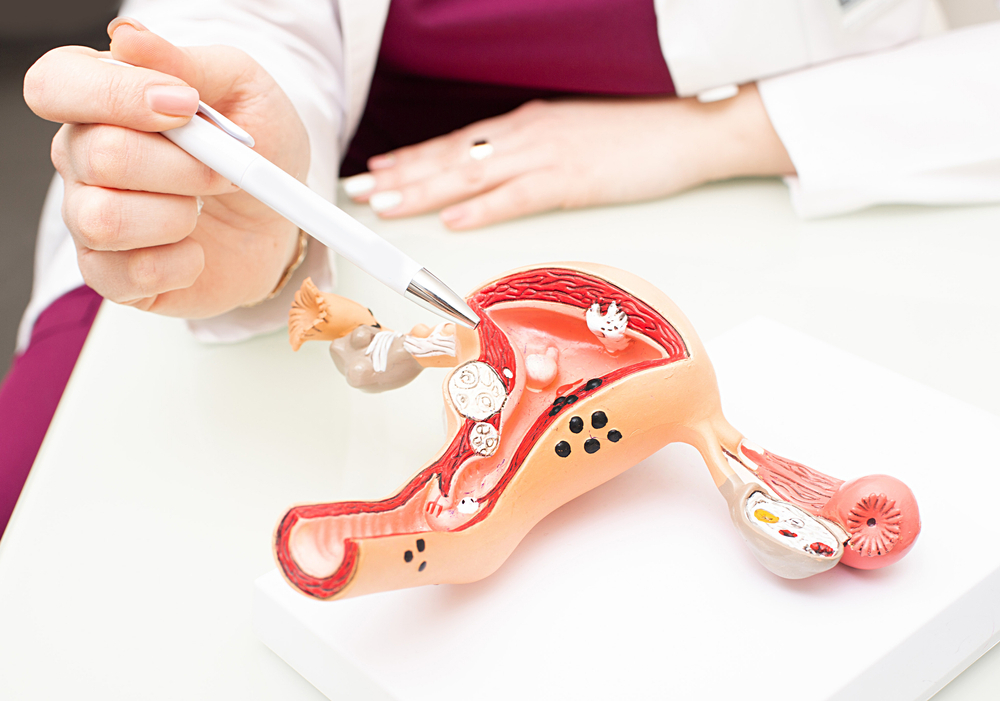
What is Endometrial Cancer?
Endometrial cancer is a type of cancer that begins in the lining of the uterus (endometrium). It is the most common type of uterine cancer and typically affects postmenopausal women. Endometrial cancer often presents with symptoms such as abnormal vaginal bleeding, pelvic pain, or changes in bowel or bladder habits. Early detection and treatment are important for favorable outcomes.
How is Endometrial Cancer Diagnosed?
Endometrial cancer is diagnosed through a combination of medical history evaluation, physical examination, imaging tests (such as ultrasound or MRI), and biopsy. A biopsy involves the removal of a small sample of tissue from the endometrium for examination under a microscope to look for cancer cells. Additional tests may be performed to determine the extent (stage) of the cancer and guide treatment planning.
What are the Treatment Options for Endometrial Cancer?
The treatment of endometrial cancer depends on various factors, including the stage and grade of the cancer, the patient's overall health and preferences, and other individual characteristics. Treatment options may include:
- Surgery: The main treatment for endometrial cancer is surgery to remove the uterus (hysterectomy) and possibly other affected tissues, such as the ovaries and fallopian tubes.
- Chemotherapy: Chemotherapy involves the use of drugs to kill cancer cells and may be recommended before or after surgery to reduce the risk of recurrence or treat advanced disease.
- Radiation therapy: Radiation therapy uses high-energy rays to kill cancer cells and may be used alone or in combination with surgery and/or chemotherapy.
- Hormone therapy: Hormone therapy may be recommended for certain types of endometrial cancer that are hormone receptor-positive, using medications to block the effects of estrogen on cancer cells.
What are the procedure after surgery?
Rest and Limit Activity : Avoid strenuous activities, heavy lifting, and vigorous exercise for the recommended period.
Keep the Area Clean : Gently clean the surgical area with water and mild soap as directed by your surgeon. Pat the area dry with a clean towel, and avoid rubbing or scrubbing.
Take Prescribed Medications : Take any prescribed pain medications, antibiotics, or other medications as instructed by your surgeon to manage pain and prevent infection.
Avoid Sexual Activity : Refrain from sexual intercourse and other sexual activities until your surgeon advises it is safe to do so. This typically takes several weeks to a month or more, depending on individual healing.
Wear Loose Clothing : Wear loose-fitting clothing, preferably cotton underwear, to minimize friction and promote airflow to the surgical area.
Attend Follow-Up Appointments : Keep all scheduled follow-up appointments with your surgeon to monitor your healing progress and address any concerns or complications promptly.
Avoid Tampons and Menstrual Cups : Refrain from using tampons and menstrual cups during your recovery period to prevent irritation and infection.
Stay Hydrated and Eat Nutritious Foods : Drink plenty of water and eat a balanced diet rich in vitamins and nutrients to support healing and boost your immune system.
Why Choose VMG Hospital for Endometrial Cancer Treatment?
VMG Hospital in Hisar, Haryana, offers expert care and comprehensive treatment options for women diagnosed with endometrial cancer. Our multidisciplinary team of gynecologic oncologists, radiation oncologists, medical oncologists, and supportive care professionals works together to provide personalized care and support throughout the treatment journey. With state-of-the-art facilities, advanced technology, and a patient-centered approach, VMG Hospital is committed to delivering the highest quality of care and improving outcomes for women with endometrial cancer.
Services
- Adenomyomectomy
- Cancer Surgery
- ECTOPIC SURGERY
- Endometriosis
- HYSTERECTOMY
- Infertility Surgery
- Isthmocele Repair
- LAPROSCOPIC INTERVAL CERVICAL ENCIRCLAGE
- LAPROSCOPIC VAGINOPLASTY
- Myomectomy Surgery
- Ovarian Cystectomy
- Prolapse Surgery
- RECANNALIZATION ( TUBOPLASTY )
- Reversal of family planning
- Total Laparoscopic Hysterectomy
- TUBECTOMY
- Urine Incontinence
- Vaginoplasty